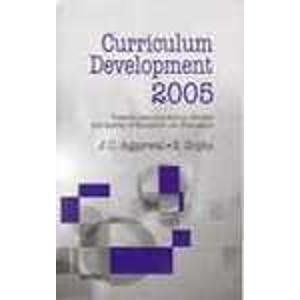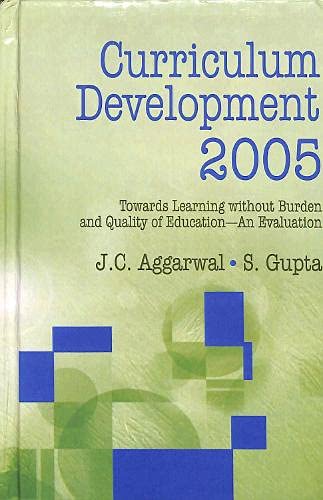curriculum development 2005 learning di aggarwal (2 risultati)
Filtri di ricerca
Tipo di articolo
- Tutti i tipi di prodotto
- Libri (2)
- Riviste e Giornali (Nessun altro risultato corrispondente a questo perfezionamento)
- Fumetti (Nessun altro risultato corrispondente a questo perfezionamento)
- Spartiti (Nessun altro risultato corrispondente a questo perfezionamento)
- Arte, Stampe e Poster (Nessun altro risultato corrispondente a questo perfezionamento)
- Fotografie (Nessun altro risultato corrispondente a questo perfezionamento)
- Mappe (Nessun altro risultato corrispondente a questo perfezionamento)
- Manoscritti e Collezionismo cartaceo (Nessun altro risultato corrispondente a questo perfezionamento)
Condizioni Maggiori informazioni
- Nuovo (1)
- Come nuovo, Ottimo o Quasi ottimo (1)
- Molto buono o Buono (Nessun altro risultato corrispondente a questo perfezionamento)
- Discreto o Mediocre (Nessun altro risultato corrispondente a questo perfezionamento)
- Come descritto (Nessun altro risultato corrispondente a questo perfezionamento)
Legatura
Ulteriori caratteristiche
- Prima ed. (Nessun altro risultato corrispondente a questo perfezionamento)
- Copia autograf. (Nessun altro risultato corrispondente a questo perfezionamento)
- Sovracoperta (Nessun altro risultato corrispondente a questo perfezionamento)
- Con foto (Nessun altro risultato corrispondente a questo perfezionamento)
- Non Print on Demand (2)
Lingua (1)
Prezzo
- Qualsiasi prezzo
- Inferiore a EUR 20
- EUR 20 a EUR 45 (Nessun altro risultato corrispondente a questo perfezionamento)
- Superiore a EUR 45 (Nessun altro risultato corrispondente a questo perfezionamento)
Spedizione gratuita
- Spedizione gratuita in U.S.A. (Nessun altro risultato corrispondente a questo perfezionamento)
Paese del venditore
Valutazione venditore
-
Curriculum Development 2005: Towards Learning Withouth Burden And Quality of Education An Evaluation
Editore: Shipra Publications, Delhi, 2022
ISBN 10: 8175412631 ISBN 13: 9788175412637
Lingua: Inglese
Da: Books in my Basket, New Delhi, India
Soft cover. Condizione: New. ISBN:9788175412637,173pp.
-
Curriculum Development 2005 : Towards Learning Without Burden and Quality of Education and Evaluat
Da: Vedams eBooks (P) Ltd, New Delhi, India
EUR 13,32
EUR 17,50 per la spedizione da India a U.S.A.Quantità: 1 disponibili
Aggiungi al carrelloHardcover. Condizione: As New. Contents Preface. 1. Foreword executive summary and members curriculum 2005. 2. Perspective. 3. Learning and knowledge. 4. Curricular areas school stages and assessment. 5. School and classroom environment. 6. Systemic reforms and epilogue. 7. Overall observations on the document and the need for the try out of the proposed curriculum. Appendices i. Learning without burden (1993) and recommendation on it by the Group Appointed by MHRD. ii. Central Advisory Board of Education (CABE) its functions and constitution. iii. Quality education for young people UNESCO/ICE (2004). The book attempts to provide a brief but constructive and critical analysis of the observations and recommendations contained in National Curriculum Framework 2005 formulated by the steering committee set up by the Ministry of Human Resource Development Government of India under the Chairmanship of Prof. Yash Pal. Since the focus on educational reforms is in the light of the document Learning Without Burden (1993) its main recommendations with their evaluation by the group constituted by the MHRD are incorporated for ready reference of the readers. The main characteristics of this publication is to provide a broad Framework for the Try Out of the curriculum at the grass roots level an element missing in NFC 2005. This work also incorporates the constitution and functions of the reconstituted Central Advisory Board of Education CABE (2004) the highest advisory body in education. On Quality Education the main recommendations of UNESCO International Conference on Education held in September 2004 are also included to have a wider perspective. It is hoped that the book should serve as a reliable companion to all those interested in the development of education. 173 pp.



